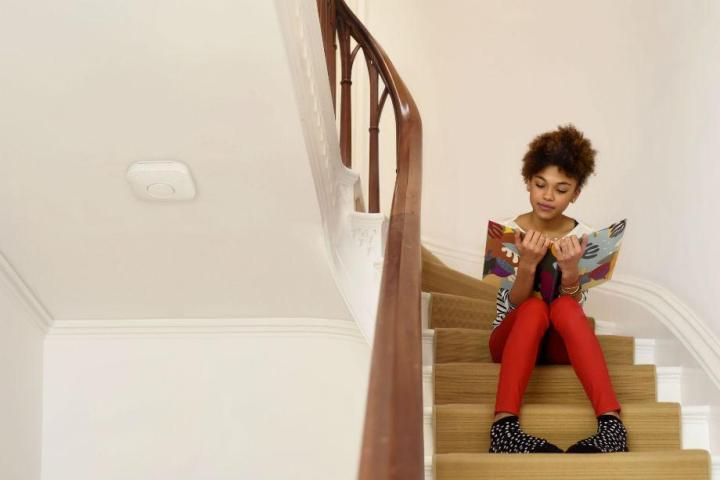
Liberty Mutual and American Family Insurance Co. last week announced insurance discounts for customers in some states who use the Nest Protect communicating smoke and carbon monoxide detector.
The detectors can send data to the Nest Safety Rewards program about whether the detectors have batteries, are properly charged, connected to Wi-Fi, and in good working order. In return, customers who sign up for the program will receive discounts of 5 percent or more on their home insurance. For a consumer paying the national average annual premium of $1,034, the savings would be about $52, reports the Boston Globe.
Liberty Mutual has initiated its Smart Home Verified Discount program in Illinois, Kentucky, Pennsylvania, Alabama, Maine, and Wisconsin. It’s a an evolution of Liberty Mutual’s Protective Devices discount program, which now includes specific discounts for smartphone-enabled smoke alarms as well as new water and theft protection technologies.
American Family Insurance offers its program in Minnesota and plans to expand into other states later this year. Both companies are offering their qualified customers a $99 Nest Protect smoke and carbon monoxide alarm for free.
Nest has also launched a new version of the Protect smoke detector, along with a line of product updgrades June 17. The original Nest Protect was recalled and required an update after it was discovered that the Nest Wave feature that allowed users to silence the alarm by waving their arms nearby could activate accidentally and cause a delay in sounding a true alarm.
Nest is the home automation subsidiary of Google, and already collects data from the many Nest Learning Thermostats on the market. Other devices that connect to Nest also do so through the cloud, so Google could be collecting data on a whole host of smart home systems.

Insurers already collect data from car devices and offer discounts to homes with security systems. Where the pros and cons of connected smart home systems falls in anyone’s guess, but you can bet buckets of Big Data, and the concerns that come with it, will be involved.


